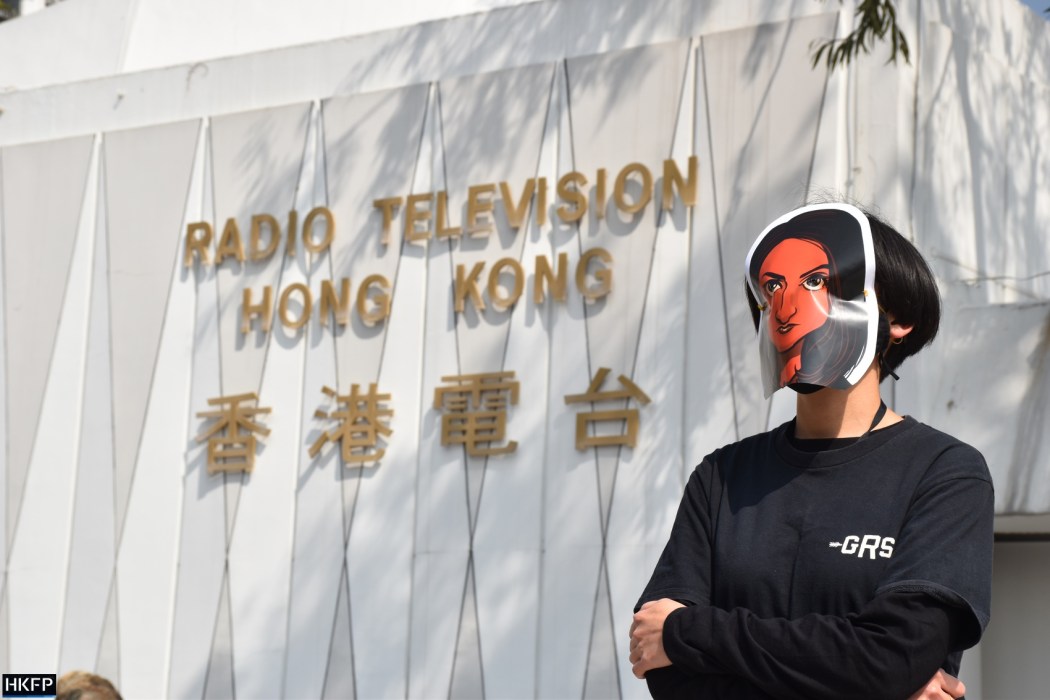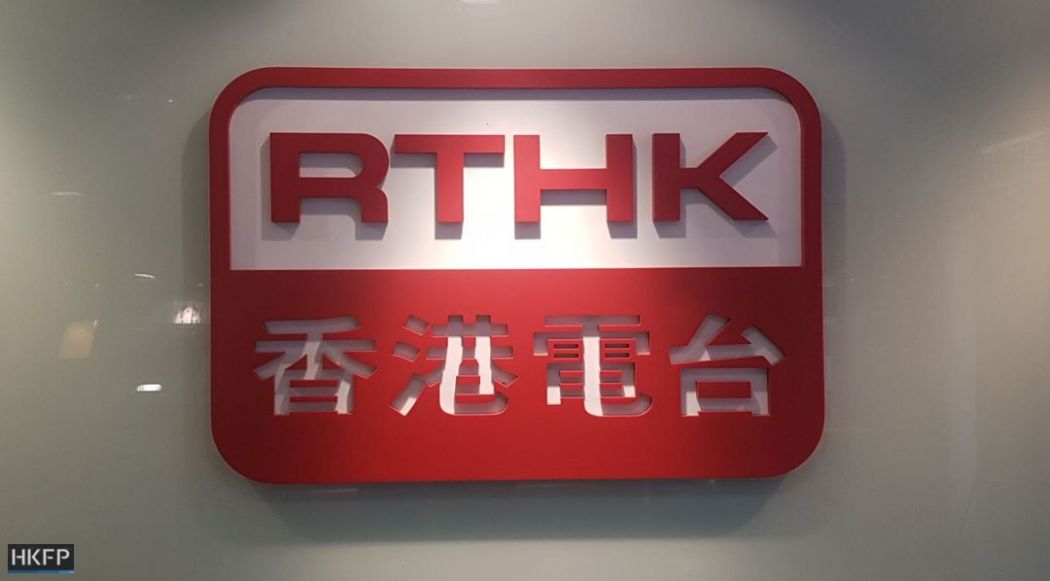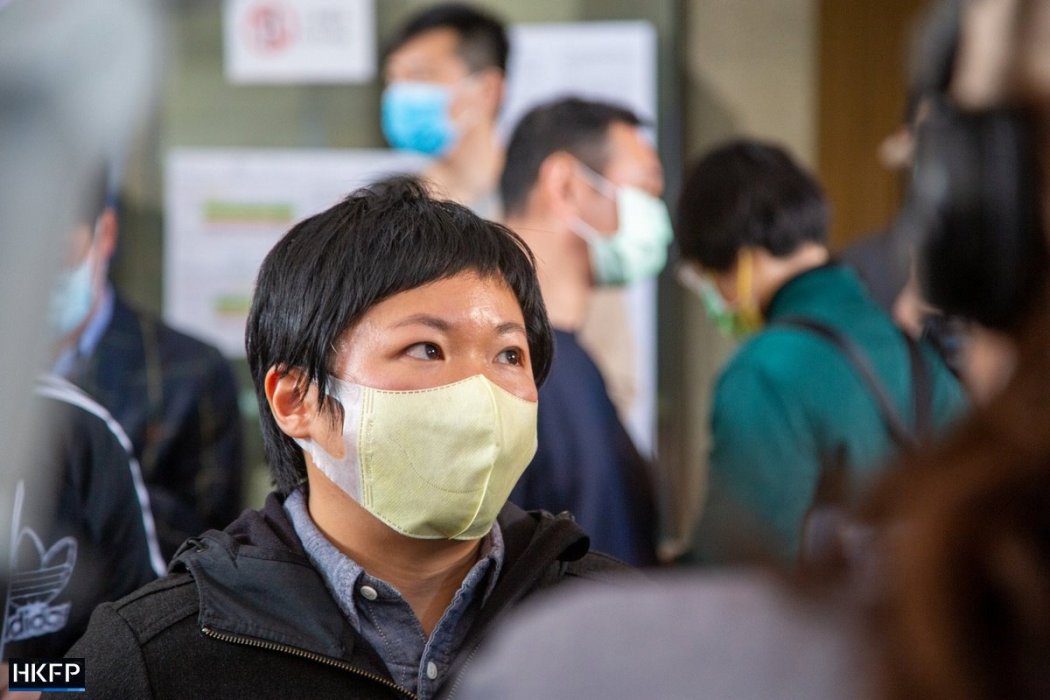Now that embattled Radio Television Hong Kong (RTHK) has tried (and failed) to withdraw its entries for some of the most distinguished journalism awards Asia has to offer, perhaps it’s time for the broadcaster, once considered to be the most credible source of news in the city, to cease its operations altogether.

Hongkongers do not need or want another government mouthpiece whose primary mission is to please the powers that be in Beijing in thought, word and deed. We already have plenty of those.
Nevertheless, that is plainly the plan for RTHK, now headed by a obsequious bureaucrat—is there any other kind in Hong Kong these days?—whose clear remit is to eviscerate the once-proud news and editorial divisions of the government-owned public broadcaster. In its better days RTHK was likened to the BBC.
When Patrick Li Pak-chuen, former deputy secretary of Home Affairs, replaced veteran journalist Leung Ka-wing as director of broadcasting at the beginning of last month, he was immediately greeted by howls of protest from RTHK’s staff union and by the resignation of one of the station’s most senior and respected employees, Doris Wong Lok-har, head of the public and current affairs section.
Seeing the writing on the wall, two other veteran RTHK heavyweights—executive producers Liu Wai-ling and Fong Hiu-shan—had already resigned in the previous month. Why? Because, like Wong, they know that Li’s knowledge of best journalistic practice is zilch and that RTHK’s days as a trusted independent broadcaster are over. We might as well erect an RIP tombstone at the entrance to the station’s rundown offices on Broadcast Drive in Kowloon Tong.

For nearly a decade, RTHK staff have been pleading for new and better digs. Now that the station is being transformed from independent broadcaster to government lapdog, maybe they will finally get their wish.
Of course, RTHK—often accused of bias in favour of the anti-extradition protesters and against the Hong Kong Police Force during the six months of street clashes between the two during 2019 and 2020—was under assault well before the unwelcome arrival of Li.
Its long-running satirical show, Headliner, which during the protests made a habit of mocking the police, was suspended indefinitely in May 2020. In addition, Nabela Qoser, a hard-nosed reporter who aggressively questioned Chief Executive Carrie Lam Cheng Yuet-ngor at the height of the protests in July of 2019, saw her three-year probationary civil service contract with the broadcaster cancelled this past January and replaced by a 120-day temporary agreement.

And let’s not forget the kerfuffle caused by RTHK reporter Yvonne Tong when in March of 2020, via teleconference, she dared to ask the assistant director general of the World Health Organisation, Bruce Aylward, this apparently taboo question: “Will the WHO reconsider Taiwan’s membership?”
No matter that at the time Covid-19 was ravaging most of the rest of the world while Taiwan had deftly managed to contain the disease. Laughably, Aylward pretended not to hear Tong’s query and, even more risibly, Secretary for Commerce and Economic Development Edward Yau Tang-wah lambasted both the reporter and the station for breaching “the one-China principle” by which Beijing maintains that Taiwan is a rogue province of China.
So by the time Li came on board on March 1, RTHK was already in trouble. Since his arrival, however, the attack on the station’s editorial independence has greatly accelerated.
During Li’s short tenure, well-known HKFP columnist Steve Vines has been dropped as a commentator from the music and chat show Morning Brew after more than a decade of regular appearances, and no fewer than nine current affairs programmes have been axed. Among them was a show focusing on the recent decision to disband made by the Chinese University’s student union, known as Syzgia, after university officials withdrew their recognition of the union, claiming its members had breached the national security law.

Another featured the long-established Canto hip-hop group LMF (Lazy Mutha Fucka), whose profanity-laced songs often take aim at the government.
An episode from LegCo Review also fell victim to the oppressive new RTHK ethos. Its central topic: the dramatic electoral changes that central government authorities are forcing on Hongkongers. This radical makeover of Hong Kong’s electoral system is the talk of the town these days—but not on LegCo Review.
The South China Morning Post reported that yet another programme—a prerecorded, 10-minute Letter to Hong Kong from opposition district councillor Michael Mo Kwan-tai that was scheduled to run last Sunday—was taken down. And then when the flummoxed production team managed to find a stand-in for Mo—Chris Yeung Kin-hing, chairman of the Hong Kong Journalists Association—that decision was overturned.

According to an RTHK statement: “The topics featured in the programmes concerned were contentious, while the programmes were not impartial, unbiased and accurate, and therefore did not comply with the requirements stipulated in the [RTHK] charter or the guidelines.”
And now the station’s new director is doing his level best to prevent RTHK editors, reporters and production crews from winning any kudos at this year’s The Society of Publishers in Asia Awards and Human Rights Press Awards by formally requesting the withdrawal of all RTHK’s previously submitted entries to the two contests.
Fortunately, however, both awards bodies have flatly declined the request, citing rules that do not allow for entries to be withdrawn at this late stage, when the adjudication process is well underway.
RTHK is basing its withdrawal request on a trumped-up government report, released in February, that found damning faults with the station’s management, editorial decision-making and work culture. An RTHK statement said the station “has decided not to nominate programmes for awards” until it has completed a review of its operations.
Meanwhile, many hard-working journos—at RTHK and elsewhere in the city—see that report as little more than an 85-page hatchet job aimed at gutting the broadcaster’s editorial independence.
The specific content of the RTHK entries for awards is not known, but one entry is thought to be a documentary on the slow police response to the 2019 Yuen Long attack on anti-government protesters and bystanders by a mob of men wearing white T-shirts and wielding steel rods and rattan canes.
Freelance producer and investigative reporter Bao Choy, coproducer of the documentary, is currently being prosecuted for using a government database of car ownership to obtain information for the programme.

In a case that has angered and alarmed many Hong Kong reporters who have long used the database in exactly the same way, the award-winning journalist stands accused of two counts of “knowingly making a false statement.”
The prosecution maintains Choy was deliberately misleading when she filled out the online form on the Transport Department’s website declaring the purpose of her search. The form gave her only three options—“legal proceedings,” “sale and purchase of vehicles” and “other traffic and transport related matters”—and Choy sensibly chose the third option. An earlier version of the form, it should be noted, had allowed applicants to type in their purpose—for example, “news reporting.”
Choy has pleaded not guilty to two counts of making a false declaration. If convicted, she faces up to six months in jail and a HK$5,000 fine.
Wouldn’t it be positively brilliant if she won an award for her documentary on what was one of the watershed events in Hong Kong’s long and arduous months of massive anti-government protests?
But if she does win, that is likely to be the last award for outstanding journalism garnered by any journalist associated with RTHK.
Support HKFP | Policies & Ethics | Error/typo? | Contact Us | Newsletter | Transparency & Annual Report | Apps
Help safeguard press freedom & keep HKFP free for all readers by supporting our team
| HKFP is an impartial platform & does not necessarily share the views of opinion writers or advertisers. HKFP presents a diversity of views & regularly invites figures across the political spectrum to write for us. Press freedom is guaranteed under the Basic Law, security law, Bill of Rights and Chinese constitution. Opinion pieces aim to point out errors or defects in the government, law or policies, or aim to suggest ideas or alterations via legal means without an intention of hatred, discontent or hostility against the authorities or other communities. |

More HKFP OPINION:
HKFP has an impartial stance, transparent funding, and balanced coverage guided by an Ethics Code and Corrections Policy.
Support press freedom & help us surpass 1,000 monthly Patrons: 100% independent, governed by an ethics code & not-for-profit.










